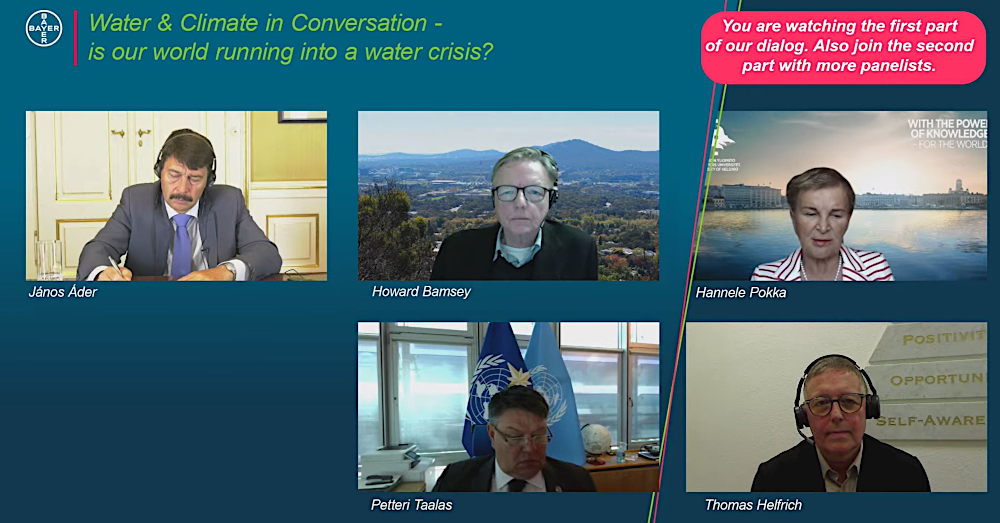The topic of the discussion, “Water & Climate in Conversation - is our world running into a water crisis?”, was data and the role of decision-makers – what they need to do to handle increasing water demand. The Water and Climate Coalition is a multi-stakeholder initiative under the SDG 6 Accelerator Framework aimed at action on water, and GWP is one of its members, represented by Chair Howard Bamsey.
In his introductory remarks, Bamsey said that water has a visibility problem because it competes with other global issues. “25 years ago, when GWP was founded, I think there was a much greater visibility – to governments and globally – of the problems we were facing with water allocation, water use, water availability, and water security. But this was “crowded out” by other global issues that came along, and to some extent took away the focus from water. And yet, water is central to most of those issues, for example, climate change. Water is usually the first casualty of climate change. So, the question arises: why? Because water is central to climate change response, it is the core of adaptation. And yet this is not seen as a water issue generally,” said Bamsey.
This is a problem GWP is working to amend, but Bamsey stressed there is a need for water actors to come together more coherently, to collaborate more deliberately and more effectively to establish a stronger voice. Being a member of the Water and Climate Coalition helps, said Bamsey, and he hopes that it can be an effective way of broadening the stakeholder base for water, including those in the private sector.
“Private users are the biggest water users, but we don't yet have a global system that brings them into a mutually supporting network with regulators and the public. This is a big task ahead.”
The issue of the private sector brought the discussion to funding, whether this could also mean more funding for sustainable global solutions. But Bamsey said he doesn't believe in the private sector being a "cash cow for good causes, because that's not how they operate.”
“There will be some extra funding from the private sector because it's in their interest, but most importantly, if water actors can reach out to each other to actively to find effective mechanisms, this would improve the funding base for water. We are seeing substantially increased financial support for climate action, particularly in developing countries, and if we can articulate the cause for water and its centrality in climate in a more effective manner, it can also improve the funding for water through climate action.”
Solutions to known problems
The President of Hungary, János Áder, was also on the panel. He presented the Water and Climate Coalition and its purpose, stressing that its role is not to talk about water problems, but to provide sustainable solutions: “We are aware that the most important issue of the 21st century is water, and the problem is only going to grow.”
Hannele Pokka, Permanent Secretary of the Ministry of the Environment in Finland, pointed out that step-by-step development is needed, starting with the most critical issues and places, because it's impossible to solve all the global problems at once.
Petteri Taalas, Secretary-General of the World Meteorological Organization (WMO), mentioned the challenges of gathering data: “poor data gives poor results”, which leads to difficulties in predicting climate events.
The event was moderated by Thomas Helfrich, Head of Corporate Positioning at Bayer.

